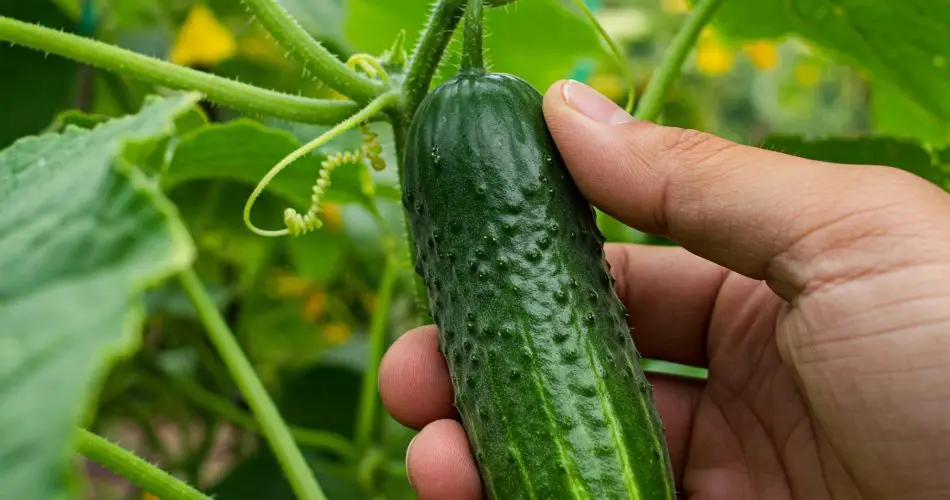Cucumbers are known for their high potassium consumption, making potassium-rich fertilizers essential during the fruiting phase. Providing proper nutrients ensures that cucumbers continue to bear fruit until the arrival of cold weather, leading to a bountiful harvest of fresh and tasty cucumbers. One of the most effective fertilizers for this purpose is potassium magnesium sulfate, commonly known as Kali Magnesia. This fertilizer is not only beneficial for cucumbers but also works well for a variety of plants, though its effects vary depending on the plant type.
Potassium magnesium sulfate serves as a plant immunity booster, helping crops resist diseases and pests. Experienced gardeners frequently use it for cucumbers, and they report excellent results. This fertilizer enhances the plant’s metabolism and sap circulation, leading to faster growth and prolonged fruiting. The presence of essential micronutrients in potassium magnesium sulfate ensures that cucumbers remain productive and healthy throughout the growing season.
Benefits of Potassium Magnesium Sulfate for Cucumbers
- Improves Plant Immunity – Helps plants withstand diseases and pests more effectively.
- Enhances Nutrient Uptake – Potassium and magnesium contribute to better absorption of other essential nutrients.
- Boosts Growth and Yield – Encourages vigorous growth and a more extended fruiting period.
- Prevents Nutrient Deficiencies – Reduces the chances of potassium and magnesium deficiency, which can cause yellowing leaves and reduced fruit production.
- Enhances Fruit Quality – Results in firmer, juicier, and better-tasting cucumbers.
How to Use Potassium Magnesium Sulfate for Cucumbers
To prepare the fertilizer solution, dissolve two tablespoons of potassium magnesium sulfate in a small amount of hot water. Once fully dissolved, dilute this mixture in 10 liters of water. Apply one liter of this solution per cucumber plant.
For best results, apply the fertilizer every two weeks during the peak fruiting phase. Avoid over-fertilization, as excessive potassium can interfere with the uptake of other essential nutrients like calcium. Always water the plants before applying the fertilizer to prevent root burn.
Additional Tips for Growing Healthy Cucumbers
- Consistent Watering: Cucumbers require regular watering, especially during hot weather. Uneven watering can lead to bitter-tasting fruits.
- Mulching: Adding a layer of organic mulch around the plants helps retain moisture and suppress weeds.
- Proper Spacing: Ensure plants have adequate space for air circulation, which reduces the risk of fungal infections.
- Support Structures: Using trellises or stakes can help cucumbers grow vertically, improving air circulation and making harvesting easier.
Conclusion
Using potassium magnesium sulfate is a simple yet effective way to enhance cucumber growth and fruit production. By supplying the necessary nutrients, it strengthens plants, extends the fruiting period, and ensures a rich harvest. Regular feeding, combined with proper watering and care, will help you enjoy a steady supply of fresh cucumbers throughout the season. Implementing these tips will lead to a more productive and healthier vegetable garden.



